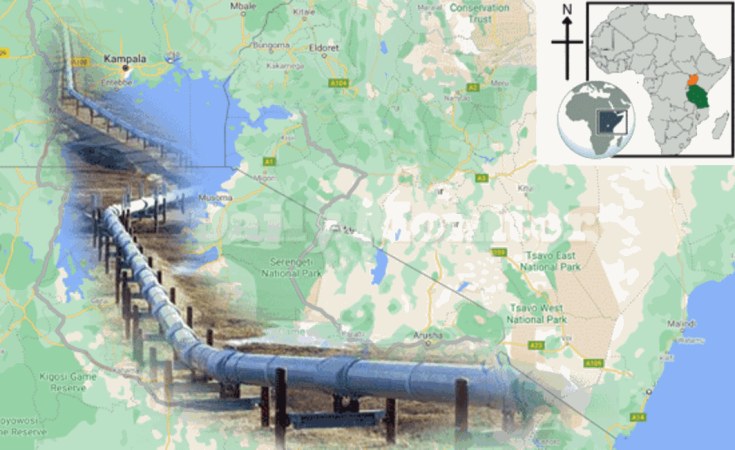Allianz, one of the world’s largest oil and gas insurers, is the seventh insurer to commit not to insure the East African Crude Oil Pipeline (EACOP), following recent statements from Munich Re, Hannover Re and SCOR. In an email to campaigners from, #StopEACOP, Inclusive Development International and Insure Our Future, Allianz stated:
“Allianz is not providing direct insurance to the East African Crude Oil Pipeline project, as it neither meets our climate ambition nor falls within our ESG risk profile.”
Omar Elmawi, Coordinator of the #StopEACOP campaign, says “It is now official, 7 out of the 15 (re)insurers we have approached have concluded that EACOP is a huge risk for them to underwrite. What are Lloyd’s of London and the others waiting for? Insurers must not be accomplices to climate-wrecking fossil fuel projects like EACOP which is mired in human rights violations, unprecedented climate consequences and social and environmental harms.”
“Allianz and the growing list of firms backing away from EACOP are doing the right thing. But if other insurers step in, the pipeline could still move forward. That’s why we’re calling on Lloyd’s of London to advise its members against participating in coverage. It’s shameful that they have so far refused to take a stand,” added David Pred, Executive Director of Inclusive Development International.
📰💪🏾📢MORE GOOD NEWS!@Allianz becomes the 7th Insurer to REJECT the East African Crude Oil Pipeline.
Insurers like @LloydsofLondon must not be accomplices to climate-wrecking fossil fuel projects like EACOP.#StopEACOPhttps://t.co/J60TF7mM9Y pic.twitter.com/aZJUYtk33o
— StopEACOP (@stopEACOP) April 11, 2022
Allianz’ rejection of EACOP comes amidst campaign pressure in which Insure Our Future has been calling on the insurer to adopt an ambitious oil and gas policy ahead of its Annual General Meeting.
Regine Richter, Energy and Finance Campaigner at Urgewald, adds “Allianz wants to be seen as a leader on sustainability. If it wants to uphold this image, it needs to rule out underwriting new oil and gas projects in line with climate science.”
Last year, major international banks that had hinted to supporting the project developed cold feet in the wake of pressure from community and non governmental organisations.
Barclays and Credit Suisse are some of the major banks that have declared they will not provide financing for the construction of the world’s biggest heated crude oil pipeline proposed by French oil company Total and the China National Offshore Oil Corporation.
Stretching for nearly 1,445 kilometers, the pipeline threatens to displace thousands of families and farmers from their land and would pose significant risks to water resources and wetlands – including the Lake Victoria basin, which over 40 million people rely upon for drinking water and food production.
The pipeline would run through numerous sensitive biodiversity hotspots, and risk significantly degrading several nature reserves crucial to the preservation of threatened elephant, lion and chimpanzee species, according to environmentalists.
Also Read
Niger mulls construction of first wind farm on IPP basis
Volatility pushes Bell Equipment out of South Africa

